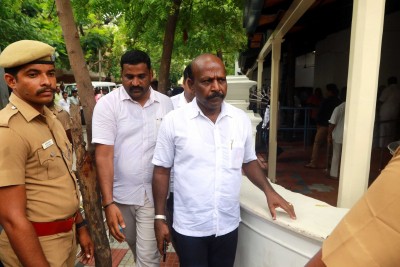
Chennai, Tamil Nadu's health department has shifted its focus more on Covid awareness programmes and has been apprising the people of the state, especially the rural settlers, of the pandemic vulnerabilities.
The state Health Minister Ma. Subramaniam has already communicated to the health department officials that the people of the rural areas are not being fully aware of the pitfalls of the pandemic and how it will ruin their lives.
The Greater Chennai Corporation had taken the help of social media platform to spread awareness among the public on Covid- 19 and the necessity of vaccination.
South India actors including Malavika Mohan also participated in a short video created by the Chennai Corporation in a question answer format with the leading city doctors.
The Chennai Super Kings Cricket team had also participated in various videos and trolls which were extensively used by the corporation to spread messages of the disease and the importance of inoculation.
In rural Tamil Nadu, it has been found that there is a hesitancy among the people in vaccinating and mainly men are reluctant.
Muthuvel, 49, a farmer in Nagercoil told IANS, "I used to consume liquor regularly and have stocked for the lockdown period also. People told me that if I take the vaccine, it will be of no effect as I am a regular drinker."
This is one of the main reasons for people shying away from vaccination and the government of Tamil Nadu has found vaccinating rural populace a major challenge.
Subramaniam said," We have made some major changes and are now focusing on vaccinating most of the population of the state. We will be creating more awareness programmes and with a large number of people hooked to social media, even in rural parts of the state, it would be a good move to create videos and other programmes to create awareness among people for vaccination."
The health department is also trying to create awareness through local police stations and anganwadi on the importance of vaccination. The gravity of the second pandemic wave is also being briefed upon among the people.
Subramaniam said, "There are differences between the first wave and the second wave. A single person can spread the disease to around 400 people during the second wave.
Another problem we are facing is the delay in people taking medical care, they do self medication and approach hospitals once the condition worses and we are hopefully making more and more people aware of the dangers of this disease and its gravity."


.jpeg)

